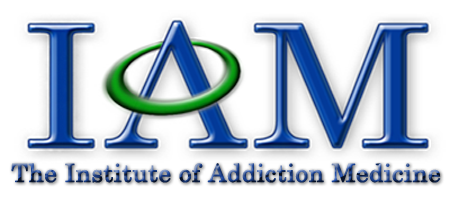Nutrition is an essential component of addiction recovery, particularly in the context of outpatient detox and medication-assisted treatment (MAT). In these treatment settings, individuals may experience a range of physical and emotional symptoms as they detox from drugs or alcohol, which can impact their ability to eat and maintain a healthy diet. Additionally, the use of certain medications in MAT can also affect appetite, digestion, and nutrient absorption, making it important to pay close attention to nutritional needs during recovery.

In this article, we’ll explore the role of nutritional support in outpatient detox and MAT treatment, including the importance of good nutrition during addiction recovery, common nutritional deficiencies in individuals with substance use disorders, and strategies for promoting a healthy diet during treatment.
Why Nutrition Is Important in Addiction Recovery
Good nutrition is important for overall health and well-being, but it is particularly critical during addiction recovery. Substance use disorders can take a serious toll on the body, leading to a range of physical and psychological health problems. Drug and alcohol use can interfere with nutrient absorption, reduce appetite, and contribute to malnutrition, which can weaken the immune system and impair organ function.
In addition to the physical impacts of addiction, individuals with substance use disorders may also experience mental health issues such as depression, anxiety, and PTSD. These conditions can further impact appetite and nutrient absorption, making it important to take a holistic approach to treatment that addresses both physical and emotional health needs.
Common Nutritional Deficiencies in Addiction Recovery
Individuals with substance use disorders are at risk of a range of nutritional deficiencies due to factors such as poor diet, malabsorption, and altered metabolism. Some of the most common nutrient deficiencies seen in addiction recovery include:
- Protein: Protein is essential for the growth and repair of tissues in the body, but many people with substance use disorders do not consume enough protein-rich foods. This can lead to muscle wasting and weakness.
- Carbohydrates: Carbohydrates are the body’s primary source of energy, but many people with substance use disorders consume high amounts of simple sugars and low amounts of complex carbohydrates. This can lead to unstable blood sugar levels, which can cause mood swings and fatigue.
- Vitamins and minerals: Individuals with substance use disorders are at risk of deficiencies in vitamins and minerals such as B vitamins, vitamin D, calcium, and magnesium. These nutrients are essential for many body functions, including bone health, energy production, and immune system function.
Strategies for Promoting a Healthy Diet During Treatment
Nutritional support is an important component of outpatient detox and MAT treatment, and there are a number of strategies that can be used to promote a healthy diet during recovery. These include:
- Nutritional screening: Prior to beginning treatment, individuals should undergo a nutritional screening to identify any existing nutrient deficiencies or health conditions that may impact dietary needs.
- Individualized meal plans: Working with a registered dietitian, individuals can develop individualized meal plans that meet their unique nutritional needs and address any deficiencies.
- Nutritional counseling: Nutritional counseling can help individuals learn about healthy eating habits, understand the relationship between nutrition and addiction recovery, and develop skills for meal planning and food preparation.
- Nutritional supplements: In some cases, nutritional supplements such as multivitamins or protein powders may be recommended to address specific nutrient deficiencies.
- Group cooking classes: Group cooking classes can be a fun and interactive way to learn about healthy meal preparation and build a sense of community among individuals in treatment.
- Onsite meal service: Some outpatient detox and MAT treatment centers offer onsite meal service, which can provide nutritious meals and support individuals in developing healthy eating habits.
In addition to these strategies, it is important to work with a qualified healthcare provider to manage any medical issues that may impact nutrition, such as digestive disorders or food allergies.
Good nutrition is an essential component of outpatient detox and MAT treatment for addiction. Nutrient deficiencies are common among individuals with substance use disorders, and can impact physical and emotional health during recovery. By promoting healthy eating habits, nutritional counseling, and individualized meal plans, healthcare providers can support individuals in achieving long-term recovery and overall well-being. If you or someone you know is undergoing outpatient detox or MAT treatment, it is important to prioritize good nutrition as part of a comprehensive treatment plan.
You are more than your addiction.
Allow our evidence-based addiction recovery program
to fully support you so you can live fully.
